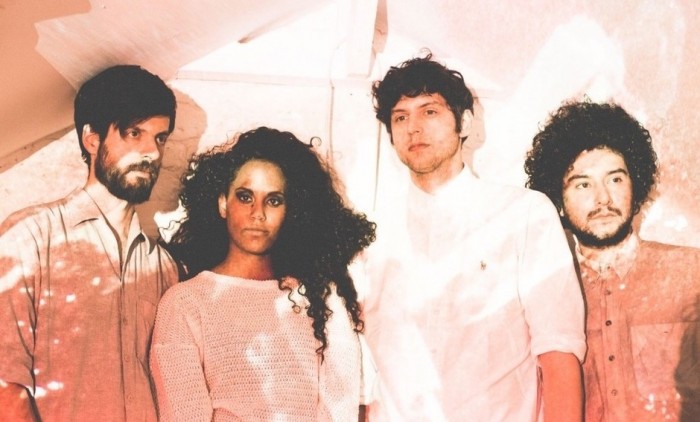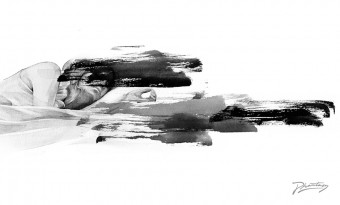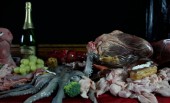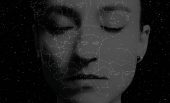When Matthew Herbert expresses an interest in working with your band, it might not necessarily be a ringing endorsement. This is, after all, a man who’s managed to make music out of bombs exploding in Libya and the life (and death) of a farmyard pig. However, you sense that the task of producing Hejira’s debut album, Prayer Before Birth, was a somewhat simpler task, thanks not least to the sophisticated source material. While we’re massive fans of Herbert’s experiments, Hejira make for a much more immediately accessible listen than porcine slaughter.
The four piece, whose members boast a combined heritage spanning from Chile to Ethiopia, recorded the album in a south-east London property dubbed ‘The House of Dreams’, with musicians setting up everywhere from the living room to the toilet. “By the end,” guitarist Alex Reeve told Nowness, “we really knew the sound of the house as much as we would the sound of an instrument”. This unconventional approach no doubt appealed to the album’s producer, although Herbert seems more enamoured with their “uncompromisingly visceral, passionate yet tender” music than their set up. In his words, Hejira are “full of gentle surprises, the whole project feels unhindered by compromise or a desire to please”.
Perhaps that sense of artistic freedom stems from a more disciplined past. Herjira’s members – Reeve, Alexis Nunez, Rahel Debebe-Dessalegne and Sam Beste – have been enlisted by everyone from Tom Jones and Amy Winehouse to Connan Mockasin and Eric Lau, although it’s only Mockasin’s twisting, kaleidoscopic pop that bears any real resemblance to anything on Prayer Before Birth (and even then, only a passing one).
Their name comes from both a jazz-influenced Joni Mitchell album (although not the one she blacked-up for) and the arabic for ‘journey’, and considering their footloose, exploratory bent, it’s a fitting one. They’re certainly never in a rush to reach their destination, as evidenced on album opener (and recent single) ‘Litmus Test’, where folky vocal lines take centre stage against occasional instrumental flourishes. Like much of the album, it’s quietly sensual and subtly experimental.
Similarly, the lilting ‘Fields of Rooftops’ feels like a gentle transmission from another London, one high above the noise and chaos of the streets (although from personal experience London rooftops can be even more noisy and chaotic than anything at ground level). Likewise, ‘Gypsy of the Soul’ is swoonsome enough to forgive a slightly cringy title, while the ghostly piano of ‘Penny’ manages to stop things getting too winsome.
However, it’s when Hejira turn the amps up that they’re at their most interesting. ‘Pinter’ is a soaring triumph, with guitar lines that weave in and out like sparrowhawks on the hunt. It’s a little reminiscent of their Accidental label-mates The Invisible, and while it does make me pine for the reassuring warmth of Dave Okumu’s vocals a little, even his presence could scarcely have improved it. ‘Powercut’ is another highlight, its tense, spidery guitars contrasting nicely with Debebe-Dessalegne’s rich melodies. For a moment it almost feels like a post-rock James Bond theme, right up until the crushingly loud bass kicks in like a triggered proximity mine.
However, while they do know how to detonate on occasion, Hejira are not what you’d call an explosive band. They take time with their compositions, letting their music bloom and decay naturally. It’s as if they themselves are following the proverbial divining rod, with no idea where it’ll take them, enjoying the same sense of curious anticipation as their listeners.
By Kier Wiater Carnihan






Follow us
Follow us on Facebook Follow us on Twitter Follow us on Google+ Subscribe our newsletter Add us to your feeds